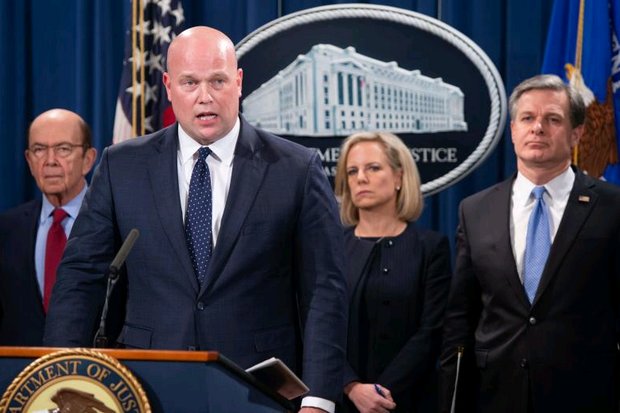
WASHINGTON: The Justice Department unsealed criminal charges Monday against Chinese tech giant Huawei, two of its subsidiaries and a top executive, all accused of misleading banks about the company's business and violating US sanctions.
The company is also charged in a separate case with stealing trade secrets from T-Mobile, according to federal prosecutors.
On Tuesday, Huawei denied the charges and said it was 'disappointed' to learn of them.
Prosecutors are seeking to extradite the company's chief financial officer, Meng Wanzhou, and allege she committed fraud by misleading banks about Huawei's business dealings in Iran.
She was arrested on Dec 1 in Canada and is awaiting possible extradition.
The criminal charges in Brooklyn and Seattle come as trade talks between China and the US are scheduled for this week.
"As I told high-level Chinese law enforcement officials in August-we need more law enforcement cooperation with China," acting Attorney General Matt Whitaker said at a news conference with other Cabinet officials, including Commerce Secretary Wilbur Ross and Homeland Security Secretary Kirstjen Nielsen. "China should be concerned about criminal activities by Chinese companies-and China should take action."
US prosecutors charge that Huawei used a Hong Kong shell company to sell equipment in Iran in violation of US sanctions. Huawei had done business in Iran through a Hong Kong company called Skycom and alleged that Meng misled US banks into believing the two companies were separate, according to the Justice Department.
The announcement Monday includes a 10-count grand jury indictment in Seattle, and a separate 13-count case from prosecutors in the Eastern District of New York.
"As you can tell from the number and magnitude of the charges, Huawei and its senior executives repeatedly refused to respect US law and standard international business practices," said FBI Director Chris Wray.
On Tuesday, Huawei rejected US charges against the company, denying that it was guilty of any of the violations in the broad indictment.
"Huawei is disappointed to learn of the charges brought against the company today," it said in a statement sent to AFP.
"The Company denies that it or its subsidiary or affiliate have committed any of the asserted violations of US law set forth in each of the indictments."
The firm "is not aware of any wrongdoing by Ms Meng (Wanzhou), and believes the US courts will ultimately reach the same conclusion," it added, referring to Huawei's chief financial officer who is awaiting an extradition hearing in Canada.
Huawei is the world's biggest supplier of network gear used by phone and internet companies and has long been seen as a front for spying by the Chinese military or security services.
Prosecutors also allege that Huawei stole trade secrets, including the technology behind a robotic device that T-Mobile used to test smartphones, prosecutors said. A jury in Seattle ruled that Huawei had misappropriated the robotic technology from T-Mobile's lab in Washington state.
The Huawei case has set off a diplomatic spat with the three nations, which has threatened to complicate ties between the US and Canada.
President Donald Trump said he would get involved in the Huawei case if it would help produce a trade agreement with China and told Reuters in an interview in December that he would "intervene if I thought it was necessary."